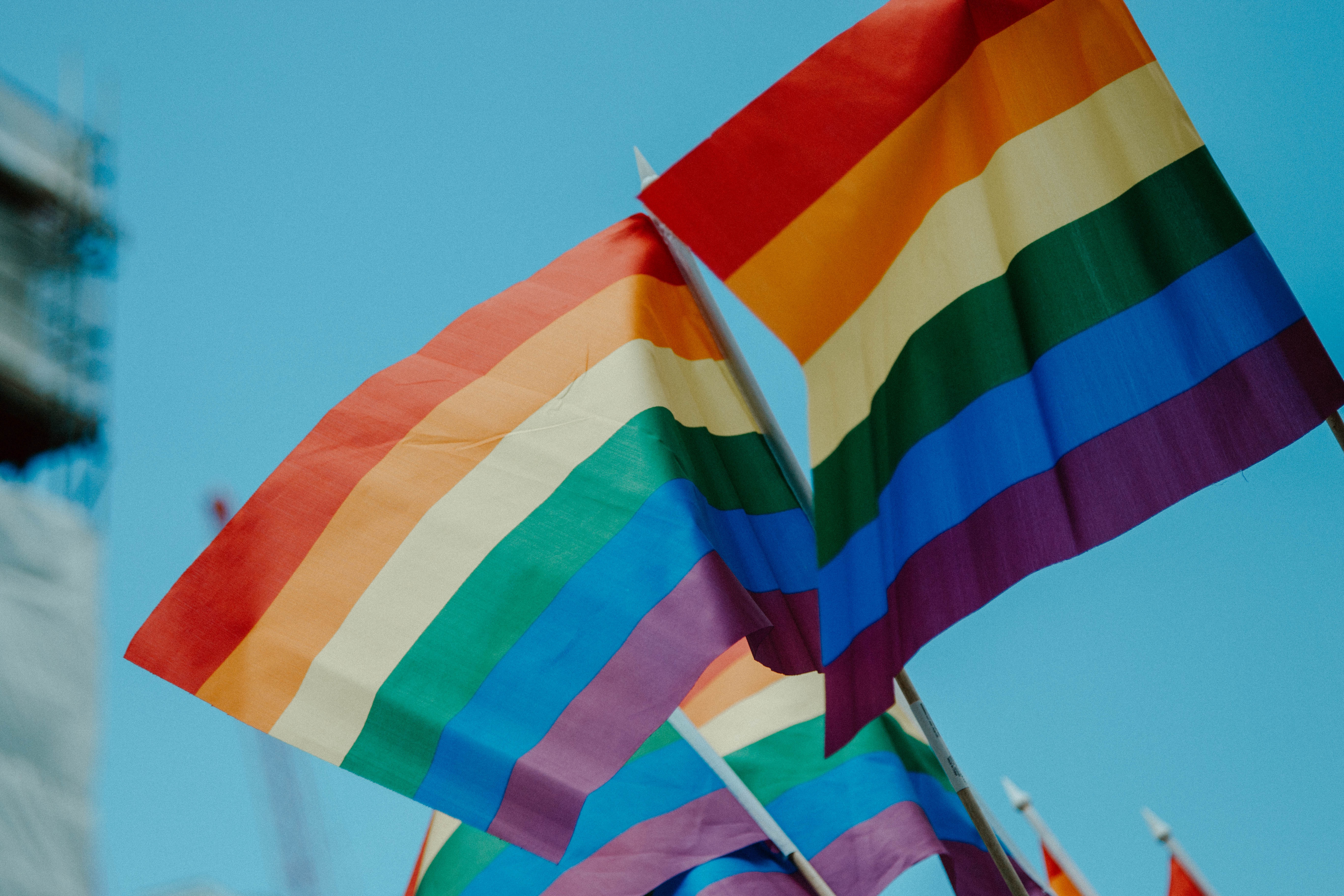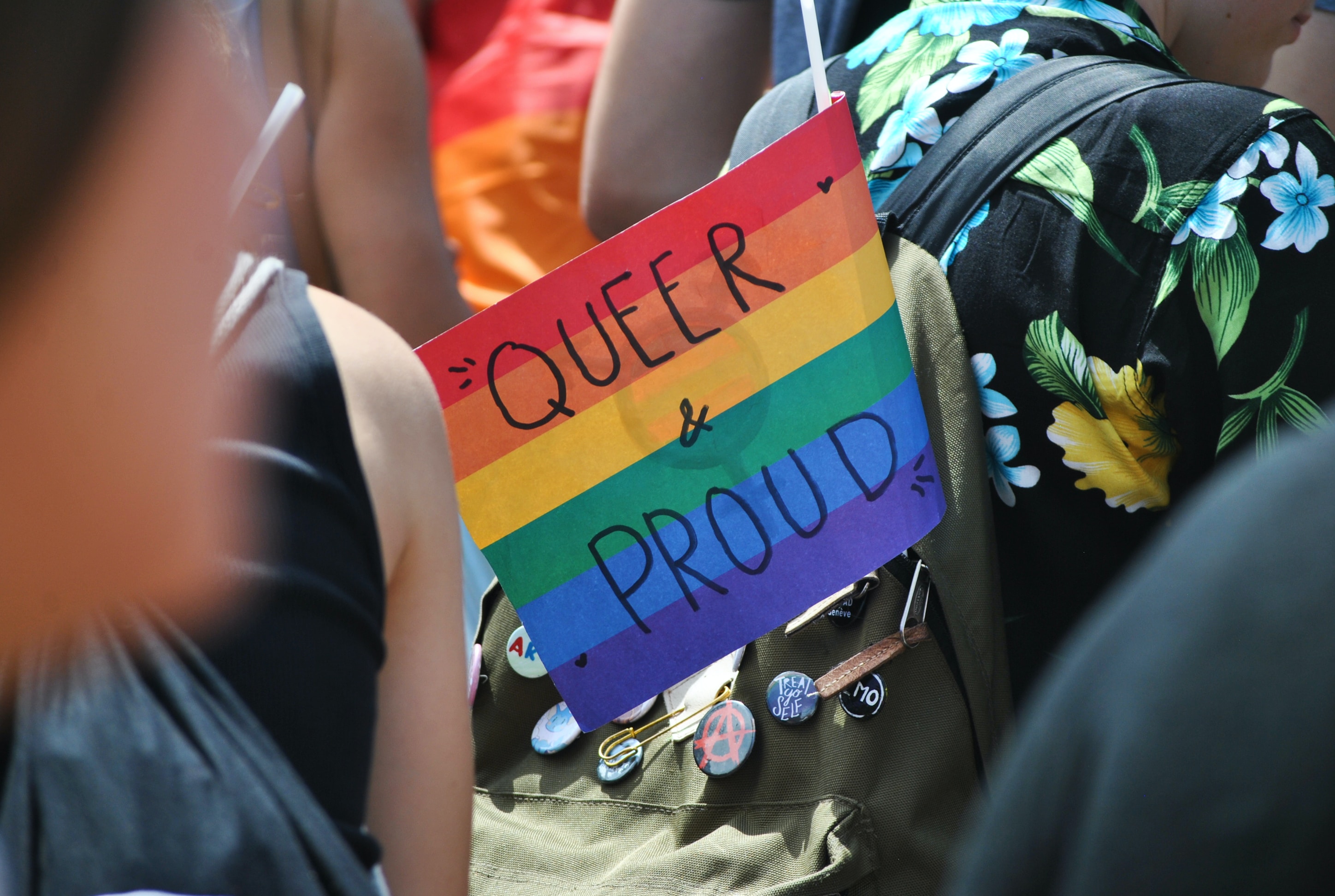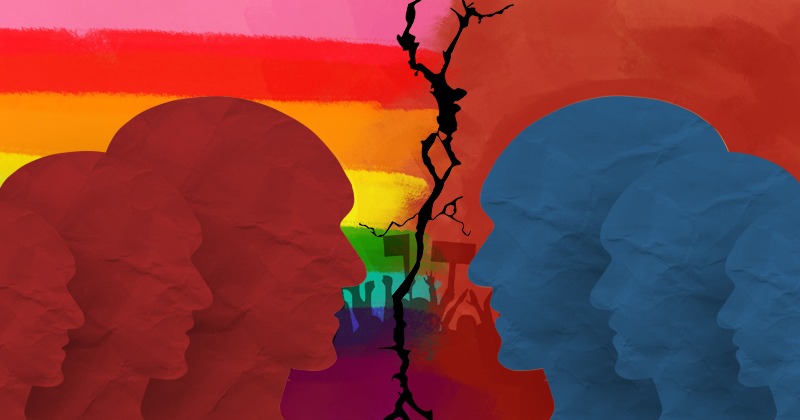“Are they for real?” was a reaction I got from a friend who found out that he was writing an article about LGBTQIA+ people who support or identify more with right-wing politics. Most political parties have had a troubled relationship with queer people, and LGBTQIA+ people do not have a track record of acceptance on either political camp. However, in recent times, more and more politicians from the center and left have shown their open and unwavering support for the LGBTQIA+ community in India and abroad.
Except for a few northern European countries and Canada, the right-wing camp still officially sits on the fence or actively attacks and derails the socio-political growth of the community. The current scenario in the US with over 520 new bills being proposed to limit, attack or reverse the rights of the LGBTQIA+ community in one way or another, is an all too painfully recent example. Therefore, it is not beyond the imagination to think that LGBTQIA+ people do not fraternize much with the right-wing camp.
Unsplash
In recent years, an interesting and often overlooked phenomenon has emerged within the LGBTQIA+ community: a growing visibility and presence of people who identify as both LGBTQIA+ and right-wing. Breaking the stereotype that LGBTQIA+ people are exclusively on the left, this diverse group challenges the notion that sexual orientation and political ideology should be mutually exclusive. In this article, I explore the experiences and perspectives of LGBTQIA+ people on the right, shedding light on their struggles, motivations, and the complexities of their unique identities in a rapidly evolving political landscape.
jump to
![]()
- Understanding Political Diversity: Intersectionality of Sexuality and Politics
- challenges and contradictions
- Motivations and perspectives
- Building bridges and promoting dialogue
Understanding Political Diversity: Intersectionality of Sexuality and Politics
“It is essential to recognize and respect political diversity within the LGBTQIA+ community,” said Mr. Shah, 38, Ahmedabad (name changed). He continues: “Being gay is my accidental identity and being on the right is my chosen identity. I’m religious and that matters to me as much as anything else.”
Also read: LGBTQIA+ Mental Health Toolkit: How to Navigate the Complexities of Wellbeing
While the LGBTQIA+ rights movement has historically been associated with progressive causes, such as marriage equality and anti-discrimination legislation, the political leanings of LGBTQIA+ people span a broad spectrum. Just as there are conservative, centrist, and liberal individuals within any society, the LGBTQIA+ community is not monolithic in terms of political ideology.
 Unsplash
Unsplash
challenges and contradictions
Right-wing LGBTQIA+ people often face unique and chosen challenges and contradictions as they navigate both their sexual orientation or gender identity and their political beliefs. Some face internal conflicts, reconciling their conservative values with the progressive goals of the broader LGBTQIA+ movement. “I am aware of the hidden hate and disgust I receive within the right-wing fold, but I think if I am to make a difference in my field, I have to do it from within and not defect,” said Mr Shukla, 41, Mumbai. External challenges can arise when they encounter criticism or rejection from their own community, as their political alignment can be perceived as a betrayal of LGBTQIA+ rights.
Motivations and perspectives
There are various motivations and perspectives that drive right-wing LGBTQIA+ people. Some find alignment with conservative principles such as limited government intervention, individual liberty, or traditional family values. Others prioritize economic policies or prioritize national security concerns. “Somehow I feel that my sexuality is not as important an issue for me personally as the economy and personal freedoms in general are. I find that my community does not respect my diverse views on the economy and civil liberties,” Mr. Dalal said.
Also read: How public data on the LGBTQIA+ community in India is formed and erased
Some may also have concerns about the influence of identity politics and believe in personal responsibility and self-sufficiency. “I hate it when I’m asked to not just leave people alone, but to politically align with their language word for word, and if I don’t, I’m not a safe space. Identity politics within the community has alienated me more than anything else, to be honest,” said Mr Singh, a 32-year-old trans man from Delhi.
It is crucial to recognize that political ideologies are complex and multifaceted, and that LGBTQIA+ people, just like anyone else, can hold a variety of beliefs that reflect their unique experiences and perspectives.
 Unsplash
Unsplash
Building bridges and promoting dialogue
Engaging in constructive dialogue and fostering understanding between LGBTQIA+ people on the left and right is essential for community growth and unity. “Don’t you think it would be wonderful if we were visible on both sides of the political spectrum and everywhere in between? I feel this is the fastest way to stop being a problem and gain acceptance,” said Mr Singh.
Also Read: Resilience and Glamour: Revealing the Tapestry of Indian Drag Queens
While it’s natural to disagree on specific issues, it’s important to respect and validate the diversity of political perspectives within the LGBTQIA+ community. Acknowledging that LGBTQIA+ people may have different political beliefs does not diminish the collective fight for equality and acceptance. By building bridges and promoting dialogue, the LGBTQIA+ community can foster inclusion and strengthen its influence on a broader scale.
For more stories about the LGBTQIA+ community and homosexuality in India, keep reading Spectrum at TIT Education.
Disclaimer: Deepak Kashyap is a counseling psychologist and cultural commentator. The opinions expressed in this article are those of the author and do not represent TIT Education.
Categories: Trending
Source: vtt.edu.vn
